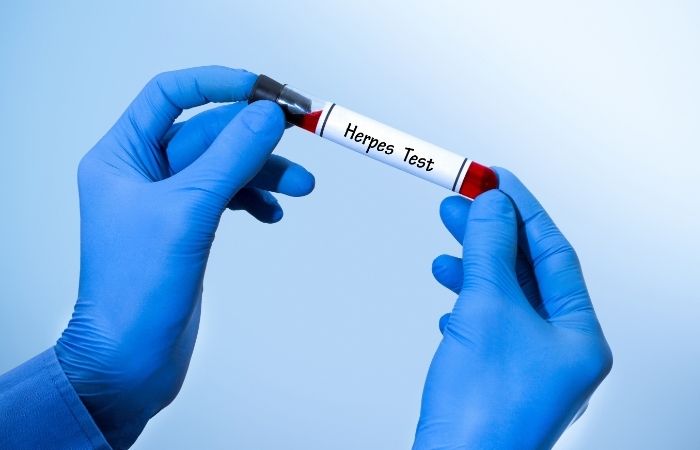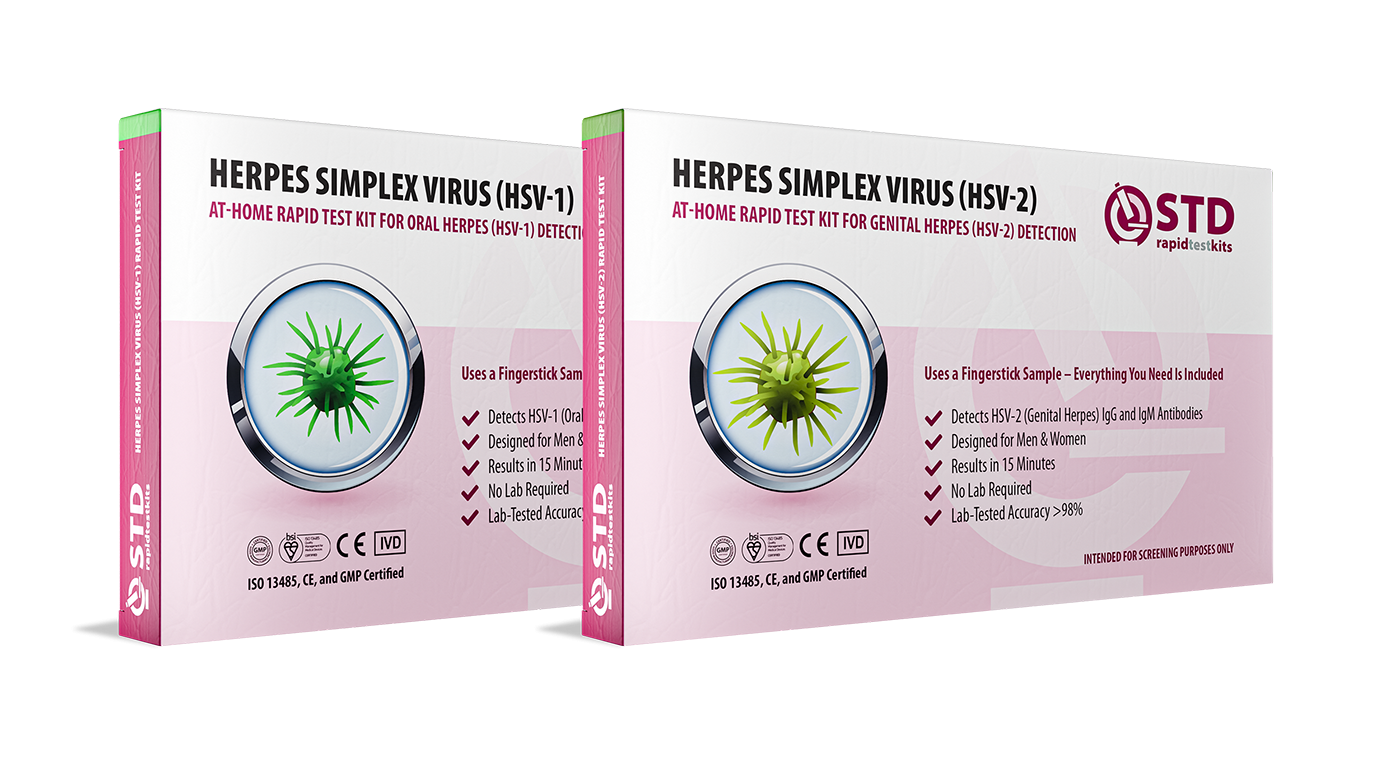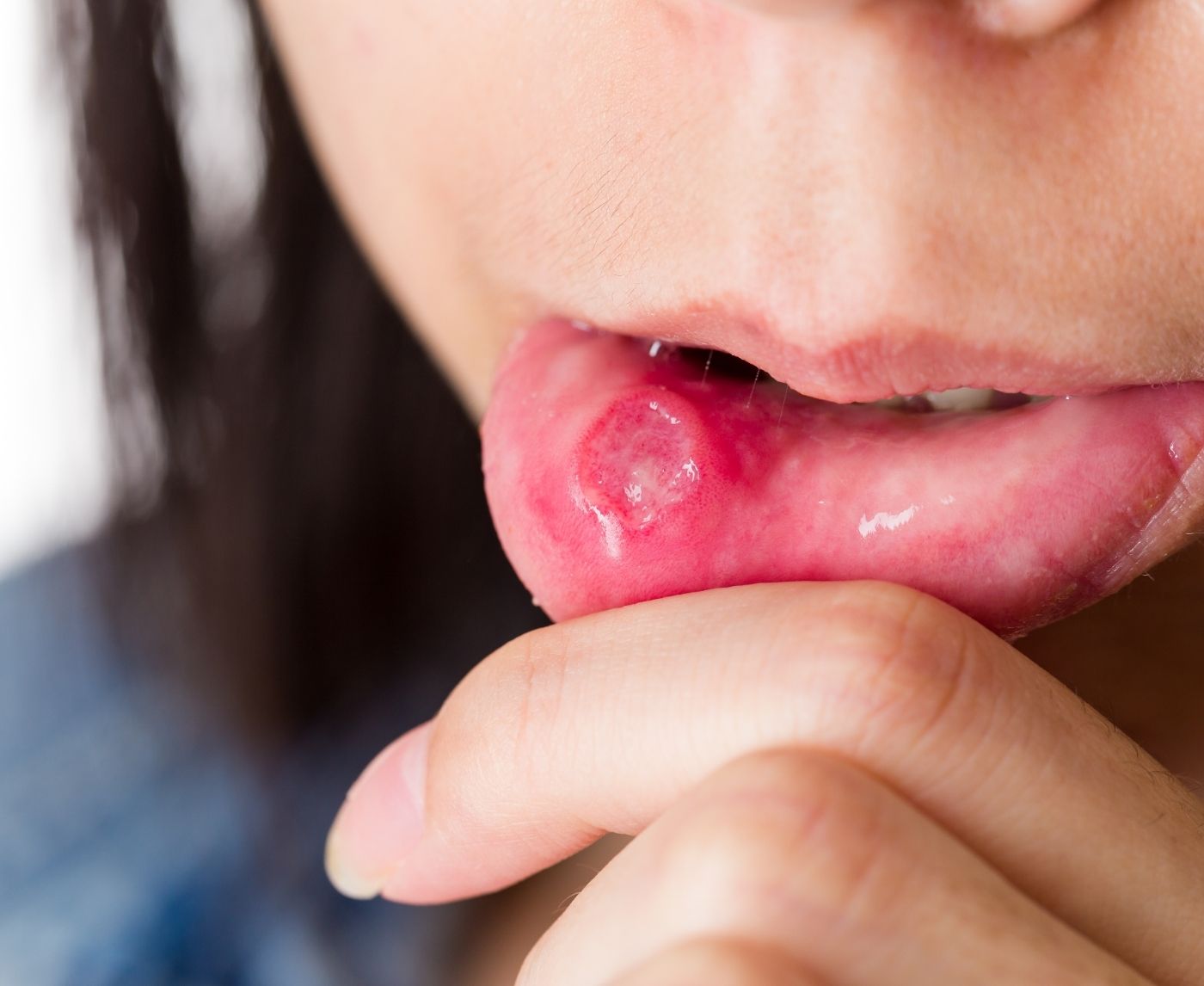The Reality of Oral Transmission of Herpes (HSV2)
What Herpes Really Is (and Why It’s So Common)
So, what is herpes, exactly? Most people think of it as a red bump on your junk or an unfortunate cold sore before a big date, but herpes is far more complicated, far more common, and far more misunderstood than that.
There are two main types of the herpes simplex virus: HSV-1 and HSV-2. HSV-1 is the kind that typically causes cold sores around the mouth. HSV-2 usually causes genital outbreaks. But here’s the twist: either type can infect either location. Yes, oral sex is a major player in this plot twist.
According to the World Health Organization, nearly 67% of the global population under age 50 is infected with HSV-1. That’s more than 3.7 billion people. In the U.S. alone, the CDC estimates over 12% of people aged 14 to 49 carry HSV-2. And yet, somehow, we’re all still acting like this virus is rare or shameful.
In truth, herpes is one of the most common sexually transmitted infections on the planet, and most people who have it don’t even know.

Why Herpes Isn’t a Big Deal (Until It Suddenly Is)
Let’s be honest. Herpes doesn’t kill you. It doesn’t make you infertile. It’s not HIV. But what it lacks in lethality, it makes up for in social destruction. People have lost relationships over herpes. Jobs. Mental health. Some are so wracked with shame after a diagnosis that they spiral into anxiety or depression. But here’s what no one tells you: herpes isn’t a death sentence for your love life. It’s a skin condition with a spectacular PR problem.
A lot of people with herpes never have symptoms. Others get a small cluster of sores during their first outbreak and then… nothing ever again. And yet the emotional fallout is massive, because of the stigma, not the virus itself.
Dating with herpes is less about itching and more about explaining. Disclosing. Risking rejection. Trying to figure out when to drop the “I have something to tell you” bomb before a night out turns into a sleepover. No one teaches you that. They should.
How Herpes Gets Around (And Why Condoms Aren’t Enough)
Let’s get blunt. Herpes is sneaky. It spreads through skin-to-skin contact, even when there are no visible symptoms. That means:
- You can catch it from kissing.
- You can catch it from oral sex.
- You can catch it while wearing a condom.
That last one hits hard. Condoms reduce the risk but don’t eliminate it, because herpes sheds from areas not covered by latex. Think thighs, buttocks, pubic region, places no condom has ever dared to go. And that’s why you can be the most careful, monogamous, condom-carrying saint on the planet, and still get herpes.
It’s also why people don’t always know they have it. The virus can lie dormant for months or years. The first outbreak might not come until a major stress event, illness, or hormonal shift triggers it. And even then, it might look like a tiny pimple or razor burn. Easy to miss. Easy to ignore. Easy to pass along.
Order Now $33.99 $49.00 Check Your STD Status in Minutes
Test at Home with Remedium
Oral Herpes Test Kit




The Mind Games of a Herpes Diagnosis
Here’s where things get dark. A herpes diagnosis doesn’t just hit your body, it hits your identity.
People often ask, “Who gave this to me?” Or worse, “Who did I give this to?” The truth? You may never know. The virus can sit silently in your body for years before doing anything suspicious. You might not have caught it from your most recent partner. It could’ve been your first kiss at 15.
But the emotional weight? That lands hard and fast. Many people go into full-blown panic mode. Not because they’re sick, but because they’re suddenly “dirty.” This is where herpes ruins people, not medically, but mentally. And it’s completely unnecessary.
Because herpes is extremely common, easily manageable, and almost never dangerous, especially with antivirals like acyclovir or valacyclovir, which reduce outbreaks and lower transmission risk significantly.
The Numbers Don’t Lie: Herpes Is Winning
Let’s get statistical for a second, because the numbers behind herpes are jaw-dropping, and totally ignored by most of the public.
- 67% of the global population under 50 has HSV-1
- 12% of Americans aged 14–49 have HSV-2
- Most people who have herpes are completely unaware they’re infected
- HSV-1 now accounts for half of all new genital herpes cases due to oral sex
And here’s the kicker: there’s no routine screening for herpes in most STD panels. Doctors won’t even test for it unless you specifically ask, and even then, it gets complicated.
There are blood tests for HSV-1 and HSV-2, but they can be inaccurate. False positives are a known issue. Some doctors even advise against testing unless someone has symptoms. So we have a virus that infects the majority of the world, spreads silently, causes little to no harm in most people… and yet testing is discouraged? It’s absurd. It’s medical gaslighting. And it leaves people stuck in confusion, shame, and silence.

Real Talk: What Experts and Survivors Say
Let’s take a moment to shut down the myths and spotlight what actual professionals and real people are saying.
Dr. Ina Park, a physician, STD expert, and author of Strange Bedfellows: Adventures in the Science, History, and Surprising Secrets of STDs, puts it this way:
“If you’re sexually active, herpes is not a matter of if, it’s a matter of when.”
She’s not exaggerating. Herpes is that common. She also emphasizes that the psychological burden of herpes is often far worse than the physical reality.
Then there’s Ella Dawson, a writer and public speaker who’s become the face of herpes advocacy. She was diagnosed with HSV-1 genitally in college and went public. Her TEDx talk blew up online.
“Herpes is not a punishment. Herpes is not dirty. It’s a virus. It’s a skin condition. That’s it.”
Her transparency has helped thousands reframe their diagnoses, especially younger people who’ve grown up in hookup culture but still absorb outdated fear-mongering about STDs.
And of course, there are everyday people, like the woman whose article in SELF Magazine admitted she couldn’t figure out who gave her herpes, because her symptoms were so mild, and none of her partners had ever shown any signs. That story? More common than you think.
How to Actually Deal With Herpes (Without Losing Your Damn Mind)
Here’s where we shift from panic to power. If you find out you have herpes, or if you just want to protect yourself, here’s what actually helps:
- Get Tested: Use a reliable home testing kit like STD Rapid Test Kits. No awkward appointments. No waiting rooms. No judgment.
- Talk About It: Whether it’s with a new partner or your therapist, the more you speak herpes into the open, the less power it holds. Disclosure gets easier the more you do it.
- Start Treatment Early: Antivirals like valacyclovir can dramatically reduce the severity and frequency of outbreaks, and lower the risk of transmission.
- Know Your Triggers: Stress, illness, and hormonal changes can cause outbreaks. Sleep, hydration, and nutrition actually matter here.
- Stop Obsessing Over Who “Gave It to You”: Unless you were recently infected and have a clear timeline, there’s almost no way to know. Focus forward.
- Join a Support Group or Forum: Reddit, Discord, even Facebook has herpes support groups full of people who get it. You’re not alone, even if it feels like it.
What It’s Like to Live With Herpes (Hint: It's Not What You Think)
Herpes doesn’t cancel your sex life. It doesn’t exile you from love. And it definitely doesn’t mean you're "dirty", that word needs to be burned.
Meet Morgan, 29, who found out she had HSV-2 after a painful outbreak and an even more painful call to an ex who denied everything.
“I thought I’d never date again,” she told a herpes support group on Reddit. “I felt like damaged goods. Then I realized: I’m still hot, still smart, still fun. I just have a virus.”
Today, she discloses early, usually on the third date, and says she’s gotten way more acceptance than she ever expected.
Then there’s Tyler, 34, who got HSV-1 genitally from oral sex. He never even had a cold sore.
“I was so confused at first,” he said in a public blog post. “I thought, ‘But I didn’t even do anything risky!’ Turns out, kissing someone with a healing cold sore was enough.”
Stories like these break the stereotype. Herpes doesn’t happen to “reckless” people. It happens to people who kissed. Had sex. Lived. And that’s the biggest truth bomb of all: herpes is normal. We just don’t talk about it like it is.
Order Now $75.00 $98.00 Check Your STD Status in Minutes
Test at Home with Remedium
Genital & Oral Herpes Test Kit




For all 2 tests
FAQs
1. Can I get herpes from oral sex?
Yes. HSV-1 spreads easily through oral sex and can infect the genitals.
2. Do condoms protect against herpes?
Partially. They reduce risk but don’t cover all the areas where the virus sheds.
3. Is herpes dangerous?
Usually no. It’s mostly a skin condition. It can be serious for newborns, though, which is why doctors monitor pregnant people with herpes closely.
4. Can I still have sex?
Absolutely. With the right precautions (and communication), you can still have a healthy sex life.
5. Do I have to tell partners I have herpes?
Yes. Ethically and legally, disclosure is important in many places. But it doesn’t have to be scary, it gets easier.
6. What’s the worst part of herpes?
Most people say the stigma. Not the sores. Not the medication. The silence.
7. Is there a cure?
Not yet. But there’s hope on the horizon with vaccine research and viral suppression therapies.
8. How do I get tested?
Ask your doctor specifically for an HSV test, or avoid the hassle and use reliable test kits from home.
9. Can I pass it to someone if I have no symptoms?
Yes. It’s called “asymptomatic shedding,” and it’s why herpes spreads so easily.
10. Can I get herpes again if I already have one type?
Yes. HSV-1 and HSV-2 are different. You can get both, though having one can offer partial immunity to the other.
Time to Drop the Shame and Get Real About Herpes
It’s time we stop pretending it’s a rare punishment for bad behavior and start treating it like what it is: a common, often mild virus that needs medical attention and social acceptance. If you’ve never been tested, the smartest move you can make is finding out where you stand, because odds are, you or someone you’ve been with has herpes. That’s not shameful. That’s statistics. Get tested. Get answers. Get peace of mind. And do it the easy way, at home, in private, without judgment.
Sources
1.- Herpes simplex virus - WHO
2.- About Genital Herpes - CDC
3.- Herpes Simplex Virus (HSV): Types, Symptoms, & Treatment - Cleveland Clinic
4.- Herpes Simplex: Background, Microbiology, Pathophysiology - Medscape










